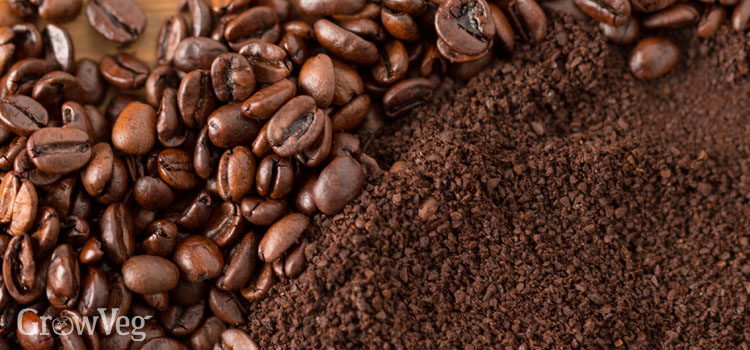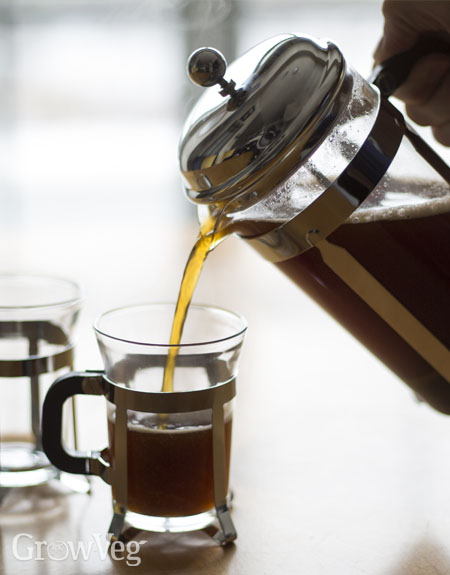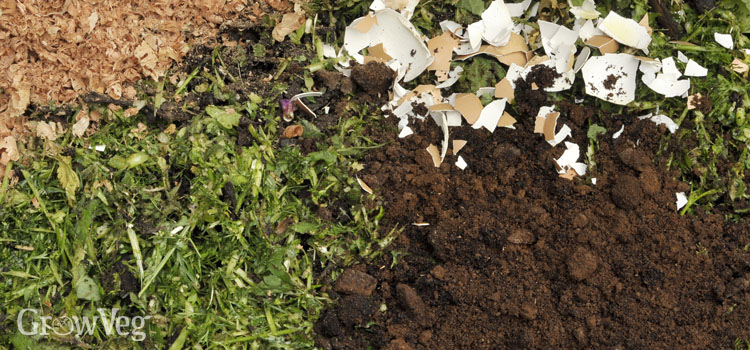Are Coffee Grounds Good For Your Garden
A Common-Sense Guide to Using Coffee Grounds in the Garden

Coffee shops often give coffee grounds away free to gardeners, as they're a waste product they would normally have to pay to dispose of. For coffee-loving gardeners like me, this freely available resource sounds like a real boon. But some gardeners suggest that using coffee grounds could be ineffective or, worse, harmful to plants.
I decided to sort the facts from the hype and find out just how beneficial – or otherwise – coffee grounds are in the garden.
Using Coffee Grounds as Mulch
Mulching is incredibly beneficial but it's notoriously difficult to come by compost, straw or other organic matter in large enough quantities at a low enough price. Using free coffee grounds seems like the perfect solution, but some gardeners have found that using coffee grounds directly on the soil has had a disastrous effect on plants. However this seems to be linked to using thick blankets of it to mulch around plants and over seeds.

The reason for this could be that coffee beans contain caffeine, which is said to suppress the growth of other plants to reduce competition for space, nutrients, water and sunlight. How much caffeine actually remains in used coffee grounds is debatable, and some plants will be more sensitive to caffeine than others. It would be sensible to avoid spreading coffee grounds around seeds or seedlings as they may inhibit germination and growth.
There is a more obvious reason why using coffee grounds alone for mulching could be detrimental. Like clay soil, coffee grounds consist of very fine particles that are prone to locking together. This turns them into a barrier that will resist water penetration and eventually result in plants dying of thirst.
The solution is to mix coffee grounds with other organic matter such as compost or leafmold before using it as a mulch. Alternatively, rake your coffee grounds into the top layer of soil so that they can't clump together. Variable particle sizes is key to good soil structure.
Coffee grounds are often said to be acidic but this can vary a lot, from very acidic to slightly alkaline, so don't expect them to acidify higher pH soils.

Using Coffee Grounds as Fertilizer
Many of us will have dumped the cold remains of a forgotten coffee in a plant pot at some point, and then perhaps wondered if it was the wrong thing to do! But it turns out that coffee grounds contain a good amount of the essential nutrient nitrogen as well as some potassium and phosphorus, plus other micronutrients. The quantity and proportions of these nutrients varies, but coffee grounds can be used as a slow-release fertilizer.
To use coffee grounds as a fertilizer sprinkle them thinly onto your soil, or add them to your compost heap. Despite their color, for the purposes of composting they're a 'green', or nitrogen-rich organic material. Make sure to balance them with enough 'browns' – carbon-rich materials such as dried leaves, woody prunings or newspaper. Your compost heap's tiny munchers and gnawers will process and mix them effectively, so using coffee grounds in this way is widely accepted to be safe and beneficial.
Many vermicomposters say that their worms love coffee grounds, so small quantities could also regularly be added to a worm bin if you have one. Paper coffee filters can go in too.

Coffee Grounds as a Natural Pesticide
An oft-repeated nugget of advice is to spread used coffee grounds around plants that are vulnerable to slug damage. There are two theories why: either the texture of the grounds is abrasive, and soft-bodied slugs prefer not to cross them, or the caffeine is harmful to slugs so they tend to avoid it.
However in an experiment slugs took just seconds to decide to cross a barrier of coffee grounds! The same researcher also sought to find out if coffee grounds would repel ants, with similar results – ants may not particularly like coffee grounds, but they won't scarper out of your garden to get away from them.

Coffee Grounds and Dogs
One word of warning though: coffee grounds may not have much effect on pests, but they can be harmful to pets in large enough doses. It's hard to say what would be a large enough dose to cause poisoning because the amount of caffeine in used coffee grounds varies. But if you have a dog that insists on sampling anything that smells halfway agreeable, it would be wise to avoid laying coffee grounds directly onto the garden. Bury them in your compost heap instead.
Coffee grounds are free organic matter, whether a by-product of your at-home daily brew or collected from coffee shops that are only too glad to give them away for nothing. If used with care and common sense, they are a worthwhile addition your compost heap and your soil.
Have you used coffee grounds in the garden? What was your experience? Share it with us by leaving a comment below!
< All Guides
Are Coffee Grounds Good For Your Garden
Source: https://www.growveg.com/guides/a-common-sense-guide-to-using-coffee-grounds-in-the-garden/
Posted by: williamsinquen.blogspot.com

0 Response to "Are Coffee Grounds Good For Your Garden"
Post a Comment